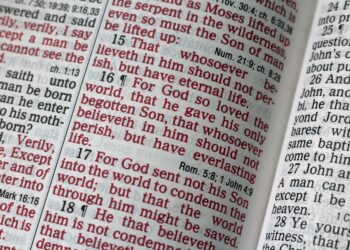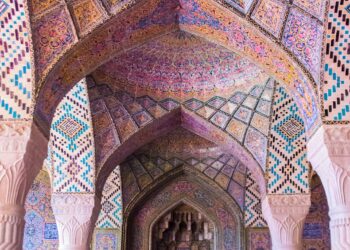The relationship between religion and politics has been a complex and often contentious issue throughout history. The intertwining of these two powerful forces has shaped societies and influenced decision-making at both the individual and institutional levels. While some believe that religion should play a prominent role in shaping political discourse, others argue for a clear separation of church and state. In this blog post, we will explore the connection between religion and politics, examining both historical and contemporary perspectives on this important issue.
Religion has long played a central role in shaping political structures and influencing governance. In many societies, laws and norms are deeply rooted in religious beliefs and teachings. For example, the Ten Commandments, a set of ethical and moral guidelines found in the Hebrew Bible, has had a profound impact on Western legal systems. The idea of “natural law,” which holds that certain ethical principles are inherent in human nature and can be discerned through reason or divine revelation, has also influenced political philosophy and governance.
In addition to shaping laws and governance, religion has often been used to justify political authority and legitimise the actions of rulers. Throughout history, monarchs and other political leaders have claimed divine right, asserting that their authority is derived from God or another higher power. This belief has been used to justify both oppressive regimes and benevolent leadership, depending on the interpretation of religious teachings.
Religion can also serve as a source of moral and ethical guidance for political leaders and decision-makers. Many faith traditions promote values such as compassion, justice, and the common good, which can inform policy decisions and guide leaders in their governance. For example, the concept of “social justice,” which calls for the fair distribution of resources and opportunities, is a central tenet of many religious traditions and has inspired movements for social change and reform.
On the other hand, some argue that religion should have no place in politics and that decisions should be based on secular, rational principles. The idea of separation of church and state, first articulated by Enlightenment thinkers such as John Locke and Thomas Jefferson, emphasises the importance of keeping religious beliefs separate from political decision-making. This separation is intended to protect individual freedom of conscience and prevent the imposition of religious beliefs on those who do not share them.
Critics of the connection between religion and politics point to historical examples of religious persecution and violence carried out in the name of faith. The Crusades, the Spanish Inquisition, and the Salem witch trials are just a few examples of how religion has been used to justify atrocities and suppress dissent. In a pluralistic society, where people of diverse faiths and beliefs coexist, the imposition of one religious perspective on all can lead to conflict and division.
In contemporary politics, the relationship between religion and politics remains a highly contested issue. In the United States, for example, debates over issues such as abortion, LGBTQ rights, and the separation of church and state continue to divide politicians and voters along religious lines. The rise of religious nationalism in countries such as India and Israel has sparked concerns about the erosion of secular democracy and the marginalisation of religious minorities.
At the same time, religion continues to inspire social movements and activism for justice and equality. The Civil Rights Movement in the United States, led by Martin Luther King Jr., drew on Christian principles of love and nonviolence to challenge racial segregation and discrimination. The anti-apartheid movement in South Africa, inspired by the teachings of Desmond Tutu and other religious leaders, mobilised people of all faiths to oppose a system of racial oppression.
Ultimately, the connection between religion and politics is a complex and multifaceted issue that touches on questions of ethics, power, and identity. While religion can provide moral guidance and inspire social change, it can also be used to justify injustice and oppression. In a pluralistic society, it is essential to balance the right to religious freedom with the need for a secular, inclusive political system that respects the rights and beliefs of all individuals. By engaging in open dialogue and respectful debate, we can navigate the complexities of the relationship between religion and politics and work towards a more just and equitable society for all.













